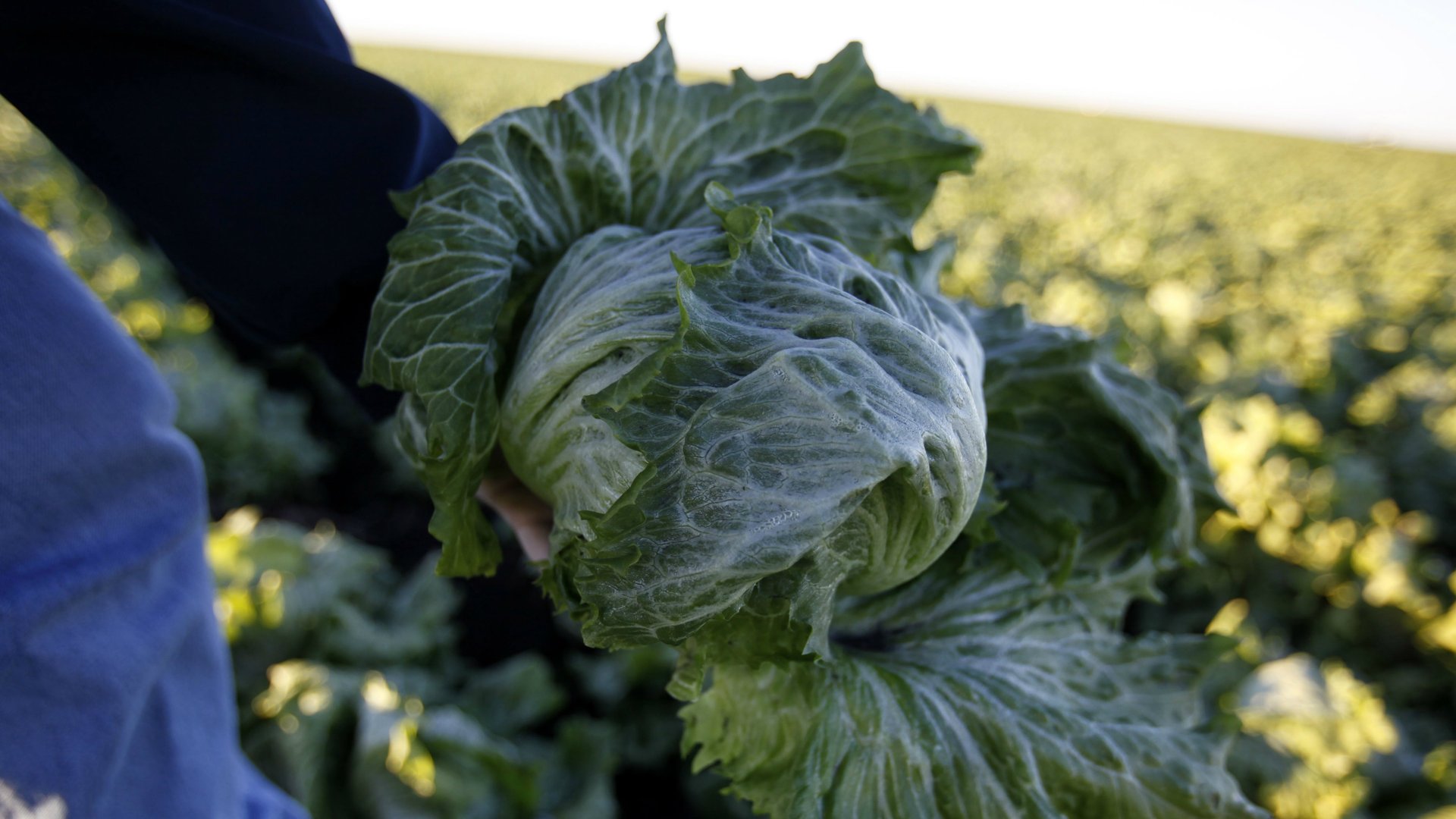Romaine lettuce is likely behind a spate of illnesses—but the FDA won’t say so yet
A consumer safety group wants the US government to recommend Americans to stop eating one of the most basic ingredients in salads—at least temporarily.


A consumer safety group wants the US government to recommend Americans to stop eating one of the most basic ingredients in salads—at least temporarily.
Food safety experts at Consumer Reports this week called upon the US Food and Drug Administration (FDA) to suggest Americans avoid eating romaine lettuce until a pernicious E. coli outbreak can be sourced and dealt with.
In the past two months, at least 58 people have fallen ill from a single strain of E. coli that’s been found across Canada and in 13 US states. At least one person in Canada has died from the strain. The Canadian government, having identified romaine lettuce in retail and restaurants as the culprit of the illnesses, is advising its citizens in the eastern provinces to avoid that particular leafy green. Meanwhile, American officials investigating the food safety outbreak have not gone so far with a recommendation.
“Even though we can’t say with 100% certainty that romaine lettuce is the cause of the E. coli outbreak in the US, a greater degree of caution is appropriate given that lettuce is almost always consumed raw,” says Consumer Reports food safety director James Rogers in a statement.
Food-borne pathogens are tricky to pin down. They’re shape shifters—malign little threats that can find their way to a person through almost any food that hasn’t been fully cooked or processed. They can travel as easily via cheeseburger or even in a box of supermarket cake mix. In recent years, food safety experts have turned to new technology—such as genome sequencing—to more quickly assess threats to determine what action to take.
The US Centers for Disease Control and Prevention (CDC) has used whole genome sequencing technology to determine that the type of E. coli behind the illnesses in America is closely related to the strain in Canada. That means people falling ill are more likely to share a common source of infection. Still, it’s not enough for a strong word of warning from the agency.
“Because we have not identified a source of the infections, CDC is unable to recommend whether US residents should avoid a particular food,” the CDC says. The FDA website does not list any recalls of romaine lettuce at this time.
Vegetables can become contaminated with E. coli if animal feces are present in the fields in which they are grown or in the irrigation systems that water them. The bacteria can also spread between humans if a person carrying the bacteria doesn’t wash his or her hands upon using the restroom.